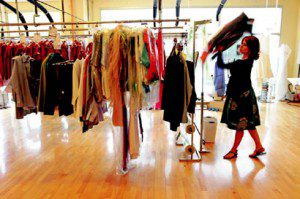As the Great Recession gives way to a non-recovery, the American dream of starting a business and making it big is dying — and with it, the most significant driver of new jobs in the U.S. economy.
New, experimental data from the Bureau of Labor Statistics illustrates the phenomenon. During the recovery that followed the 2001 dot-com bust, small businesses employing 10 to 249 people hired vastly more than they have during the recovery that officially began in June 2009. These businesses typically account for the majority of new hires, as much as two-thirds. But in this anemic recovery, their growth is being strangled by lack of demand and thus, so is job creation.
“Productivity gains and new innovations are the engine of the economy,” said Troy Davig, a senior U.S. economist at Barclays Capital who has looked at the new data. “These things come from small companies.”
In 2004, these small businesses made about 37 million hires, or nearly two-thirds of the nation’s total. In 2010, that number was just 27 million, or about 63% of the total. In the 30 months from January 2004 to June 2007, establishments with 10 to 249 employees generated about 135 million new hires. From July 2007 to December 2010, those businesses generated about 107 million new hires.



